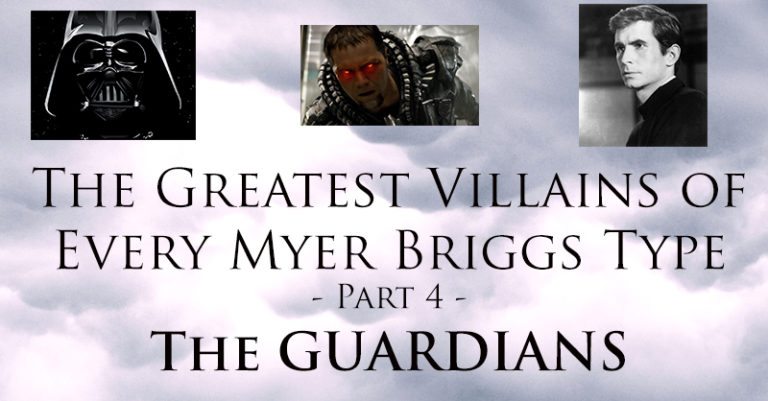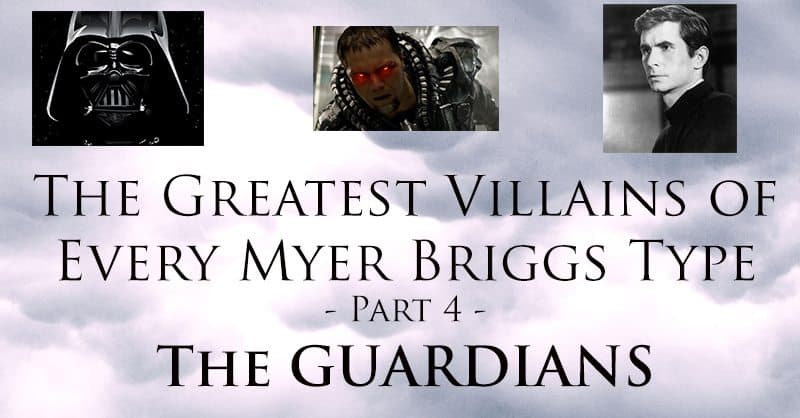What You’re Like During Grip Stress, Based On Your Myers-Briggs® Personality Type
Have you ever reached a point when you’re stressed where you suddenly just don’t care anymore? Do you ever “flip a switch” and start acting in ways that would be totally unlike you when you’re calm? You could be experiencing “grip” stress. Let’s explore what grip stress is, why it happens, and how you can get out of it and into a healthier mindset.
Not sure what your personality type is? Take our new personality questionnaire here. Or you can take the official MBTI® here.

This article contains affiliate links to books on Amazon. If you purchase one of these books, I get a small kickback that I can use to pay for hosting and other demands of this site. I only recommend books I love.
Table of contents
- What is Grip Stress? (Read this First)
- How You Experience Grip Stress, Based On Your Personality Type
- ENFP and ENTP Grip Stress
- ESFP and ESTP Grip Stress
- INFJ and INTJ Grip Stress
- ISFJ and ISTJ Grip Stress
- INFP and ISFP Grip Stress
- INTP and ISTP Grip Stress
- ENTJ or ESTJ Grip Stress
- ENFJ and ESFJ Grip Stress
- What Do You Do About Grip Stress?
Estimated reading time: 14 minutes
What is Grip Stress? (Read this First)
Grip stress occurs when you’re overwhelmed, exhausted, and at the peak of your stress levels. When your normally relied-upon mental tools prove incapable of solving the problems you’re dealing with, your inferior function can take the wheel and control your personality for spurts of time until your stress load subsides.
As an example, here’s a look at the ISFP cognitive function stack at a normal level of health and without the influence of grip stress:

And now here’s an image of what the cognitive function stack for the ISFP would look like when in the grip of stress.

Naomi Quenk, a licensed clinical psychologist who has written most of the content we have on grip stress, states, “Conscious skill and experience with a function does not prevent us from falling into the grip. With sufficient fatigue or stress, our inferior function will take over, quite beyond our control.” You can read more from Naomi Quenk in her book, Was That Really Me? How Everyday Stress Brings Out Our Hidden Personality
Imagine it like this. Say you’re an INFJ and you’re dealing with a relationship problem that seems to have blown out of control. You’re exhausted, drained, and emotionally vulnerable. You try to throw all your intuition and feeling at this problem. “What’s the underlying pattern in the relationship?” “How will the trajectory continue if you stay in the relationship?” “What values are at stake?” The problem is you’re drained, weary, and your intuition doesn’t seem to be adequately solving the problem for you. But you keep pushing and pushing, extending your mental energy beyond its comfort zone.
What happens when you’re doing this? Chances are, you start to become one-sided and more true-to-type. You exhaust yourself. Then the inferior function, one you hadn’t even considered as a solution, erupts and charges forward, taking control of your personality while your dominant intuition and auxiliary feeling side get a breather.
When any type first experiences stress they tend to become more one-sided and true-to-type than usual. If stress continues or spikes, then the inferior function will take over to compensate for the exhausted dominant function.
Unfortunately, when the inferior function takes the wheel, it’s typically not in a mature, controlled way. It usually shows up in erratic shifts in behavior and uncharacteristic outbursts. In this article we’ll explore the way that it can show up during grip stress for each of the 16 personality types.
How You Experience Grip Stress, Based On Your Personality Type
ENFP and ENTP Grip Stress
As an ENFP or ENTP, you typically approach the world around you with a sense of possibility and eagerness. You enjoy exploring new opportunities and sharing your passion of new ideas with others. You typically are bored by repetition, details, or facts unless they coincide with one of your interests or spark an interesting theoretical possibility in your mind. The world of sensation can feel dull, lifeless, and predictable. It’s easier for you to dismiss the sensing perspective that bubbles up from within your mind than to focus on it. That’s why, when Intuition wears out,, the sensing side is more than happy to take the wheel and have a chance to “run the show” of your personality.
When you experience grip stress you become obsessed with the details of whatever project you’re involved in. Suddenly all the details stand out like blaring red lights. As a result, you get lost in busy work, trying to perfect every detail, no matter how insignificant. Your vision, normally broad and creative, becomes blurred and narrowed. You become less sociable and friendly and more serious and reserved.
Symptoms of an ENFP or ENTP being in grip stress (they may experience some or all of these):
- They become detached and reserved
- They obsess about perfecting every little detail on a project
- They become more paranoid and nitpicky
- They are hyper-aware of how they feel physically and may worry that they have an illness
- They are overwhelmed by feelings of sadness or despair
- They feel mentally stifled and uninspired
- ENTPs may become more emotionally reactive and hyper-sensitive
- ENFPs may become more critical, commanding, and/or bend logic to fit their suspicions
- They struggle to verbalize their thoughts or feelings
- They obsessively organize something in their environment
- They escalate smaller issues into major issues
ESFP and ESTP Grip Stress
Enthusiastic and pragmatic, you believe that life is meant to be experienced in all its raw beauty. You are typically quick on your feet, down-to-earth, and opportunistic. You see experiences to be enjoyed everywhere and have no problem jumping right into action to amplify the current moment and make it more memorable and intense. As the opposite of sensation, intuition can seem slow and lifeless to you. Imagining for its own sake, theorizing about the unknown, or reading-between-the-lines can feel dull and pointless. Your perspective is that it is safer and more pragmatic to focus on what is right in front of you; what can be seen, touch, tasted, and experienced.
When you experience grip stress, you become more detached from your surroundings. You want to back away from people and restrict your easy-going, spontaneous demeanor. Instead of feeling energized and optimistic, you feel tired, drained, and worried. You may avoid other people, fixate on responsibilities, or become obsessed with terrible visions of the future.
Symptoms of an ESFP or ESTP being in grip stress (they may experience some or all of these):
- They become forgetful and unfocused
- They feel overwhelmed by fantasies of impending disaster
- They have a foreboding sense that things are going to go wrong
- They get distracted by disturbing inner images
- They doubt themselves
- They feel lonely and gloomy
- They selectively choose environmental data to support their visions
- They assume bad intent in others
- They feel suspicious and paranoid
- They become obsessed with mystical theories or spiritual practices
- They are less tolerant and more easily-angered
INFJ and INTJ Grip Stress
As an INFJ or INTJ, you typically approach life with curiosity and perceptiveness. You strive to understand the deeper meaning behind things and anticipate and predict how things will play out long-term. As an intuitive-dominant personality, it’s crucial for you to spot implications, patterns, and possibilities. In contrast, the world of sensing (your inferior function) can feel distracting, overwhelming, or uninspiring unless it evokes a deeper meaning or insight inside of you.
When you experience grip stress, you feel mentally scattered and distractible. Your typically focused, insightful perspective becomes foggy, panicky, and tense. You feel like it’s impossible to simply think. Instead, you fall into the grip and focus on “acting.”
Symptoms of an INFJ or INTJ being in grip stress (they may experience some or all of these symptoms):
- They become reckless and impulsive
- They overeat, drink too much, or binge in some way
- They lose touch with their imagination
- They stop being able to sense possibilities
- They make factual mistakes
- They lose things, drop things, bump into things, and get infuriated by the physical world
- They overindulge in sensory pleasures
- They see the outside world as “out-to-get-them”
- They obsess over data and facts
- They feverishly clean their environment or organize materials
Read This Next: 5 Things That Every Stressed-Out INFJ Needs to Hear
12 Stress-Busting Techniques for INTJs
ISFJ and ISTJ Grip Stress
As an ISFJ or ISTJ, you crave a world that is stable, secure, and peaceful. Grounded in reality, you trust the evidence of your senses and review and assimilate facts in order to create the life you want. You feel the best way to guard yourself against unforeseen risks is to carefully manage all the details in your environment and fill your knowledge base with steady, relied-upon facts. Because you trust sensing so much, the world of intuition, in contrast, can feel ungrounded, unrealistic, or even irresponsible. That said, intuition colors your perspectives, allowing you to see possibilities with objects as well as negative possibilities that you want to circumvent.
When you are in the grip of your inferior function, you feel pessimistic, scattered, and worried. Your mind feels foggy and you lose track of details. Your extraverted intuition fills your mind with catastrophic possibilities and you lose your typical ability to focus on one thing at a time.
Symptoms of an ISFJ or ISTJ being in grip stress (they may experience some or all of these):
- They lose the ability to keep track of details
- They become more impulsive
- They worry about all the things that could go wrong
- They catastrophize about impending doom
- They sense danger everywhere
- They are uncharacteristically spontaneous
- They become less responsible than usual
- They feel confused, anxious, panicky, and distracted
- They have sarcastic, cynical humor
- They come up with unrealistic, untested possibilities in hope of solving a problem
INFP and ISFP Grip Stress
As an INFP or ISFP, you typically approach the world with a gentle, open, flexible perspective. You strive to respect your own and others’ values and live a life of integrity and meaning. Experiencing inner harmony is crucial to you, and you experience this harmony by staying on a trajectory that aligns with your deepest sense of purpose in life. The world of thinking can seem too detached, impersonal, or dominating for your taste. You may have thinking friends and loved ones, but when you try to enter that mindset it tends to feel exhausting unless you can find a way to use it to serve your feeling-centered values and goals.
When you experience grip stress, you become less concerned with harmony and tact. You stop caring about others’ feelings as much and react quickly, without worrying about careful evaluation. Often this takes on the form of mulling over bitter thoughts towards others or becoming sarcastic and passive-aggressive. You will feel a restless urge to organize everything around you and “fix” errors that seem like raging fires in desperate need of extinguishing.
Symptoms of an INFP or ISFP being in grip stress (they may experience some or all of these):
- They feel disconnected from their values and deeper feelings
- They hyper-fixated on accomplishing tasks
- They quickly judge others as incompetent
- Their criticisms become more withering and aggressive
- They become hypersensitive to others’ mistakes
- They become nitpicky about logic
- They feel mentally stifled and stuck, like there is no possibility
- They are short-tempered and blaming
- They feel an enormous urge to take action and “solve” problems
Read This Next: 12 Stress-Busting Tips for INFPs or How to De-Stress Your Loved Ones, Based On Their Myers-Briggs® Personality Type
INTP and ISTP Grip Stress
As an INTP or ISTP, you typically approach the world with curiosity and a hunger for understanding. You see yourself as a dispassionate observer, using objective analysis to understand the principles of how things work. You have the ability to focus on complex problems and understand their intricacies in a way that would make other types restless. If you’re an ISTP, you try to bring your analytical side into the real world through experimentation and hands-on activities. If you’re an INTP, you enjoy putting ideas together to form new theories or conceptual possibilities. The world of feeling can seem unpredictable and overwhelming to you because it’s hard to logically organize and categorize the components of it.
When you are in the grip of your inferior function, you feel mentally slowed down and foggy. Your typically focused, analytical perspective becomes cloudy, scattered, and inefficient. You feel confused and mentally disorganized, struggling to concentrate on anything.
Symptoms of an INTP or ISTP being in grip stress (they may experience some or all of these symptoms):
- They become forgetful and scattered
- They are uncharacteristically impatient and demanding
- They obsess over their relationships and worry that others are rejecting them
- They are emotionally hypersensitive
- They feel detached and isolated from others
- They worry that they are unlovable
- They become outwardly emotional and sentimental
- They seek affirmation and consolation from others
- They struggle to hold back their irritability and anger
- They are overwhelmed by emotions from others
Read This Next: Here’s What Each Introverted Myers-Briggs® Personality Type Needs When They’re Stressed
ENTJ or ESTJ Grip Stress
As an ENTJ or ESTJ, you value efficient and effective decision-making. Setting goals and implementing ways to reach those goals gives you a strong sense of satisfaction. Being competent as well as being surrounded by competent people is crucial to you. Typically honest, direct, and straightforward, you enjoy constantly moving forward, being productive, and reaching new benchmarks and achievements. In contrast to your dominant thinking side, your feeling side can feel overly-sentimental, emotional, or illogical. This is because your experience of introverted feeling is inferior, not dominant. Introverted feeling isn’t about being sentimental or emotional but about maintaining inner harmony, clarifying values, and deciding tasks based on what’s personally meaningful and important. Inferior introverted feeling is a less-mature form of introverted feeling, and so its nuance is less evident.
When you are in the grip of your inferior function, you feel uncharacteristically emotional, insecure, and unmotivated. You may lose your ability to think logically and become scattered in your focus, unable to make decisions quickly like you usually can.
Symptoms of an ENTJ or ESTJ being in grip stress (they may experience some or all of these symptoms):
- They feel unappreciated and taken for granted
- They become disorganized and lose things
- Work feels exhausting and overwhelming to them
- They struggle to verbalize what they are thinking or feeling
- They become more detached, reclusive, and isolated
- They become hypersensitive to their emotions
- They react with strong emotional outbursts
- They misinterpret others’ comments as personal attacks
- They lash out at others because they feel they are being treated unfairly
- They try to repress their growing feelings until they explode on someone
ENFJ and ESFJ Grip Stress
As an ENFJ or ESFJ, you approach life with a desire to form close bonds with others. You want to understand people, get in their shoes, and create harmonious experiences. The well-being of others is often your first focus and it’s natural for you to uphold values that will get everyone’s needs met. In contrast to your dominant feeling side, your inferior thinking side can seem impersonal, dull, or insensitive. Because you experience introverted thinking in an inferior way, you’re likely to dismiss its value unless it serves a greater feeling-based purpose.
When you are in the grip of your inferior function, you become uncharacteristically withdrawn and more detached from the world around you. Other people’s feelings feel invasive rather than welcome and you experience a numb sensation emotionally.
Symptoms of an ENFJ or ESFJ being in grip stress (they may experience some or all of these symptoms):
- They become cynical and sarcastic with people
- They criticize and say terse, condescending remarks
- They “guilt trip” others
- They become judgmental towards themselves and others
- They feel self-protective
- They feel embarrassed for feeling out-of-control
- They look for an absolute truth to solve their problems
- They wind up in analysis-paralysis
- They look to experts or books to analyze problems and find logical answers
What Do You Do About Grip Stress?
There are many ways to snap out of a grip stress episode. One of the most crucial things to do is to get alone for a few moments, practice deep breathing, and calm your body physically. Take this time to assess any immediate physical needs that are lacking. Ask yourself these questions:
Have you eaten enough?
Are you dehydrated?
Are you sleep-deprived?
Have you been holding in physical tension for too long?
Focus on relaxing your body, breathing deeply, and taking care of immediate physical problems that might be exacerbating your stress. Try not to eat sugar as this can cause a cortisol spike that only increases your stress in the long-term. Sometimes relaxing and placing a heat wrap around your neck or taking a hot shower can help you to de-compress.
After you’ve had some time to tend to your physical needs and calm your body down, look for stress-reduction techniques that are suited to your personality. I’ve written two articles that address the various ways each type can ease up on their stress. You can see the articles below:
Here’s What Each Introverted Myers-Briggs® Personality Type Needs When They’re Stressed
Here’s What Each Extroverted Myers-Briggs® Personality Type Needs When They’re Stressed
What Are Your Thoughts?
Do you have any insights, perspectives, or suggestions to share? Let us know in the comments!
Find out more about your personality type in our eBooks, Discovering You: Unlocking the Power of Personality Type, The INFJ – Understanding the Mystic, The INFP – Understanding the Dreamer, and The INTJ – Understanding the Strategist. You can also connect with me via Facebook, Instagram, or Twitter!















Hey Susan. I have recently certified as a MBTI practitioner.
Your article has helped me understand the experience of being”in the grip” in greater detail.
Thanks for explaining it so beautifully.
I look forward to following psychologyjunkie.com for more in depth information on various aspects and applications of the MBTI.
Cheers!
Dr. Vishakha Vohra
Thank you!! I’m so glad that you found the article helpful! Congrats on getting your MBTI Certification!
How do we “deal with” our particular grip stress issues?
-ESTJ’er
I AM an INFJ and can relate to what you describe here. My behaviours during grip stress are extreme to this day. However I was annoyed when you said your daughter saved your life. It’s great you got through the hardships but I don’t wanna have kids precisely cuz I’m not surę if they could depend on me. Thanks for the article which did made me see I’m not alone.
I dont believe in the cognitive function stacks. I know I’m either INTJ or INFJ, both of which have Se as the 4th function. But I don’t think that Se is my 4th out of 8, but my dead last function. In stress, I wouldn’t binge or do any of the other things in that list. But I would lose my Fe and yell at people. However, I think that this kind of reaction would be common for many personality types, not just mine. It’s more like a human nature thing. We lose our politeness and concern for others or others’ opinions of us when we’re stressed.
How do you know your are INTJ or INFJ?
I’m an INTP and recently had an outburst of temper that didn’t involve other people but still surprised me. I needed to be alone and began reorganizing my closet, which had been in disarray for some time and had been a source of visual clutter which creates “background stress” for me. It had little to do with the issue at hand but it was something productive that gave my mind something else to focus on while I processed what had happened.